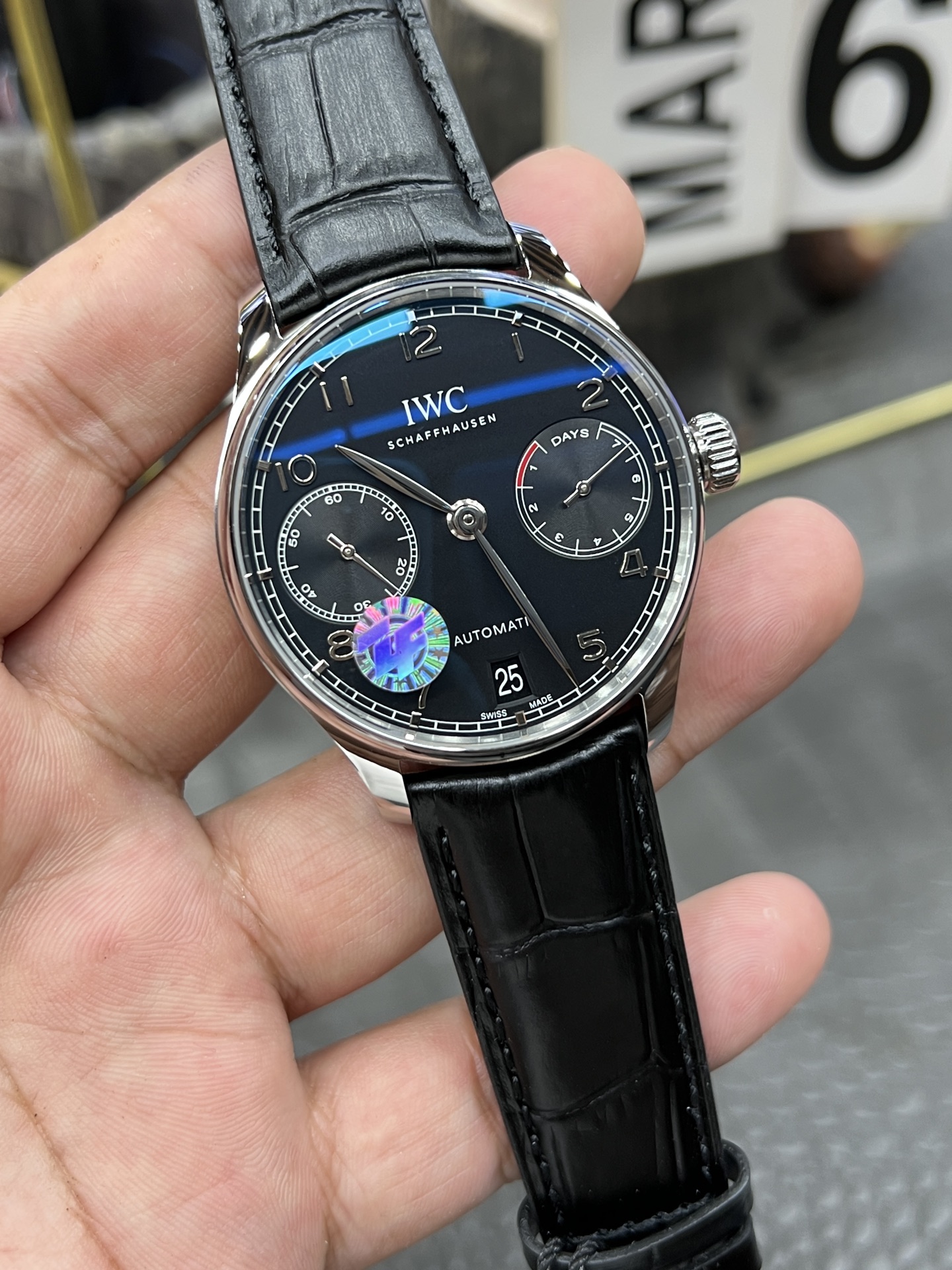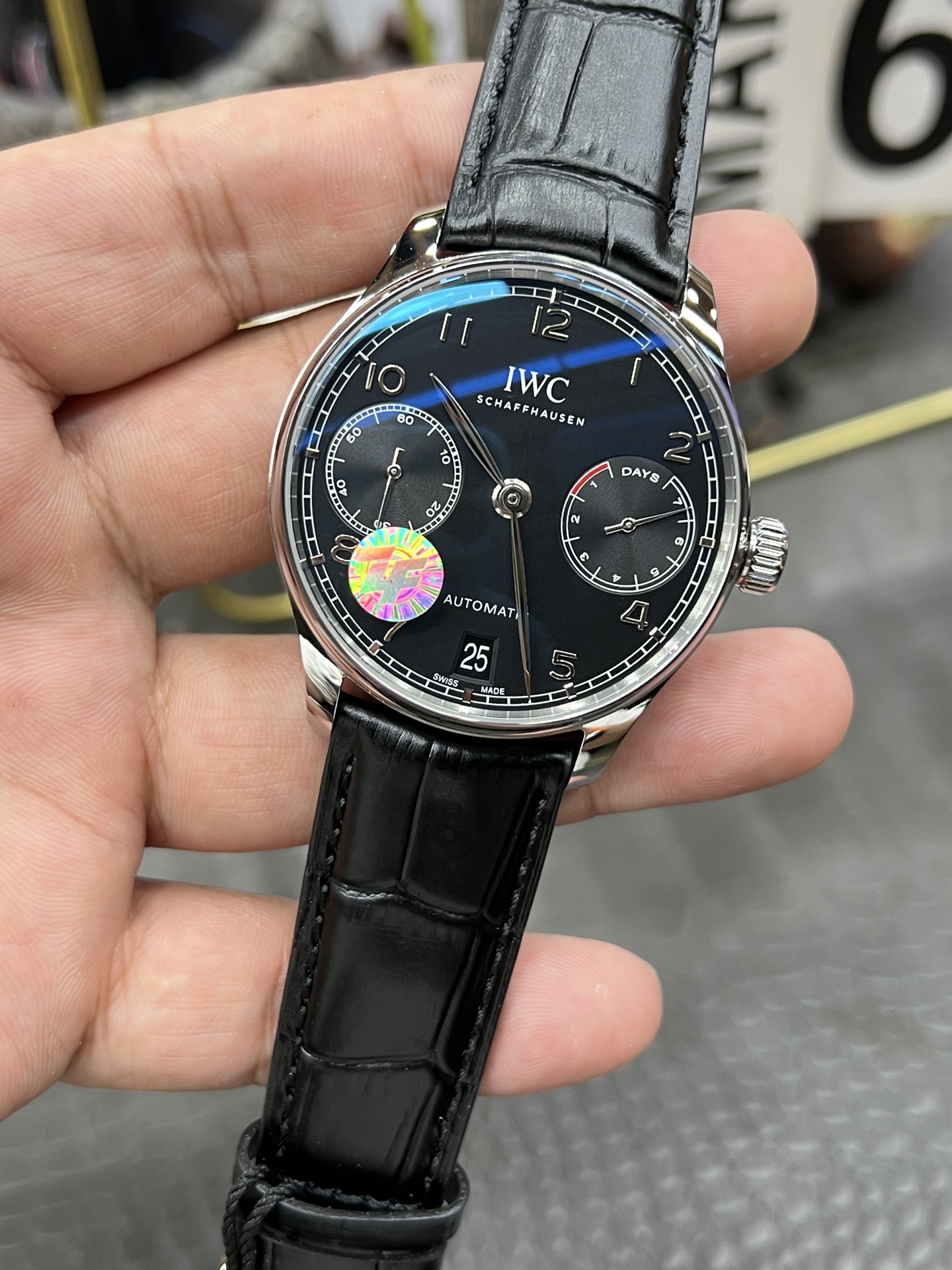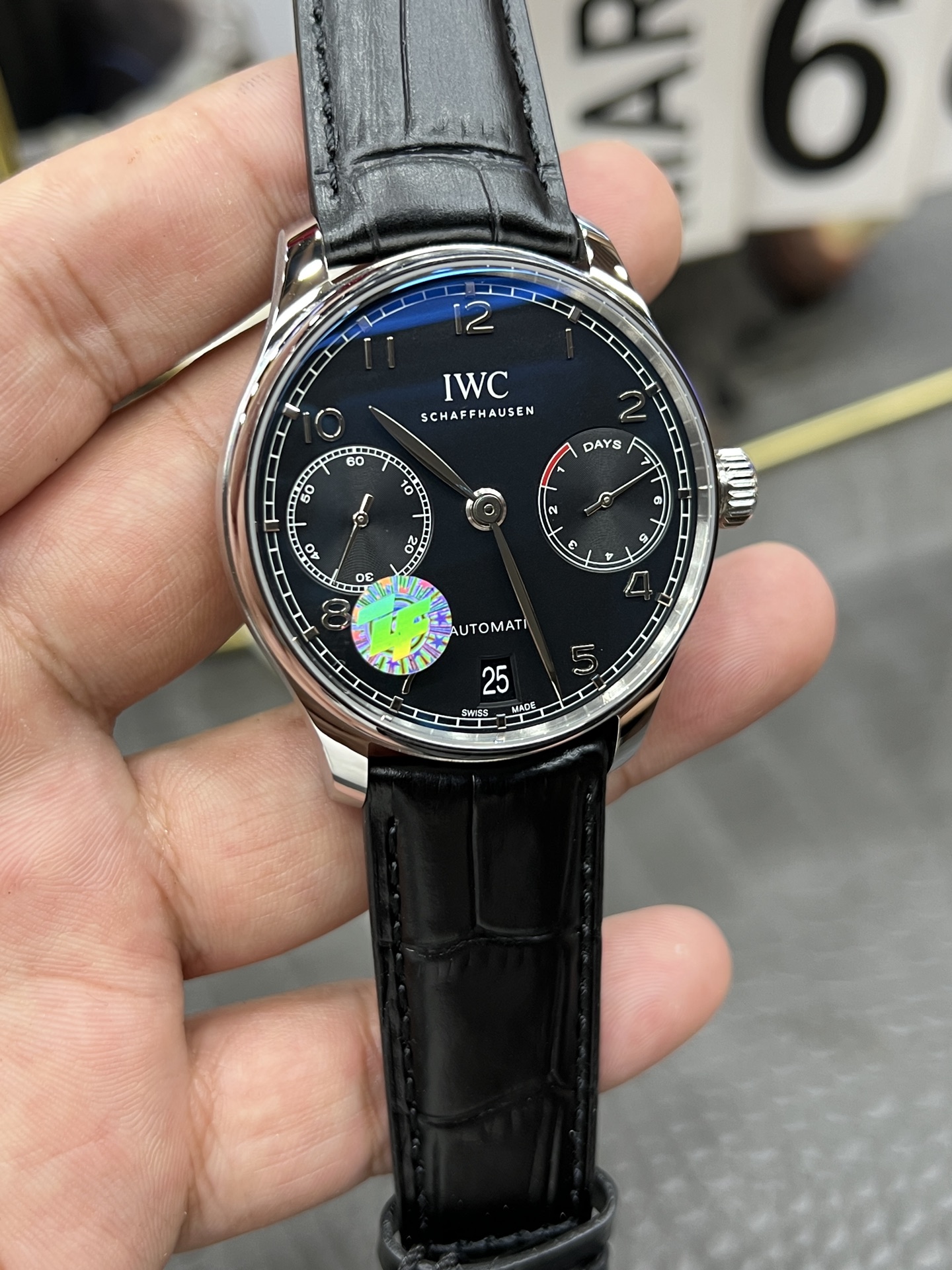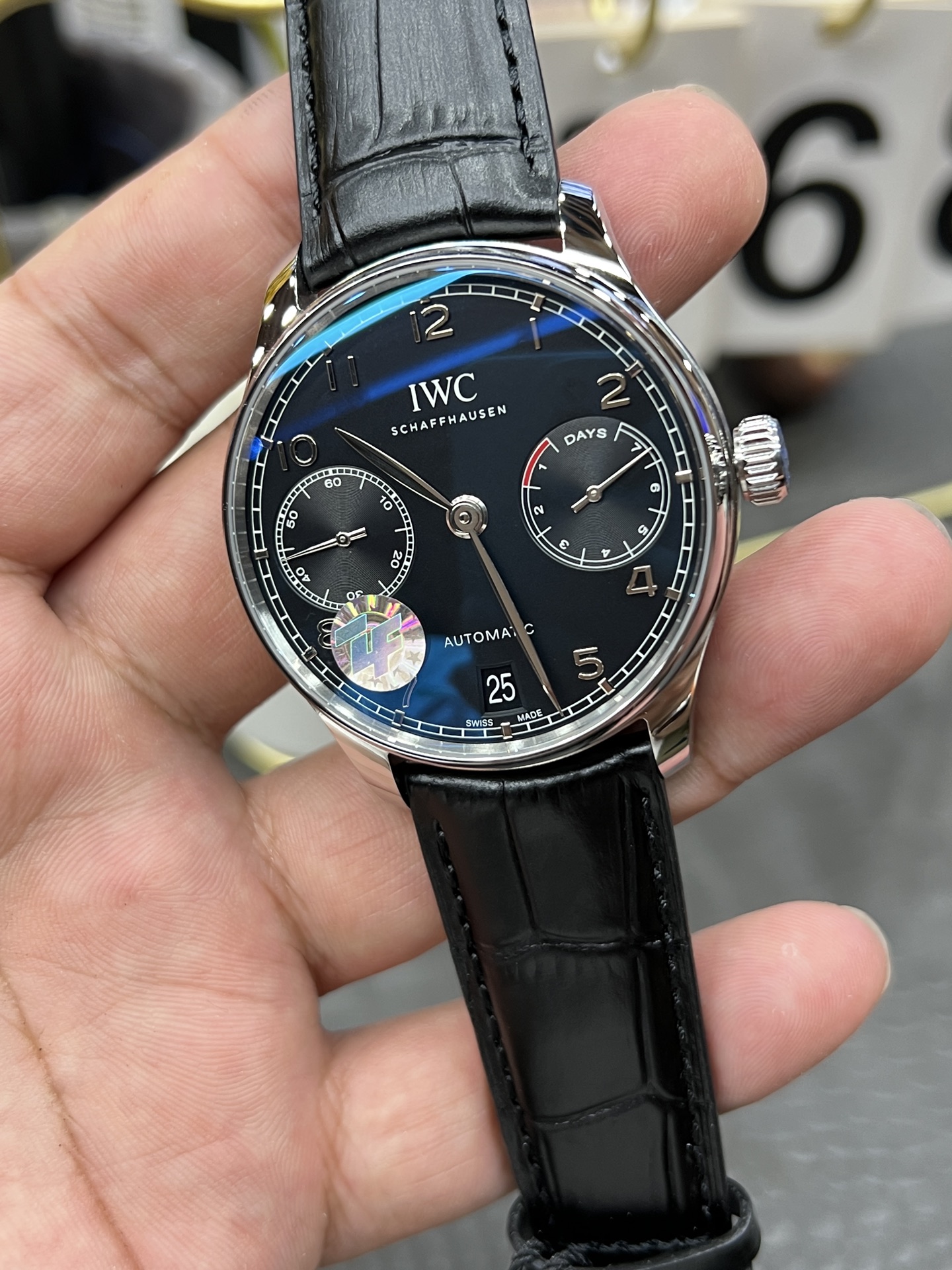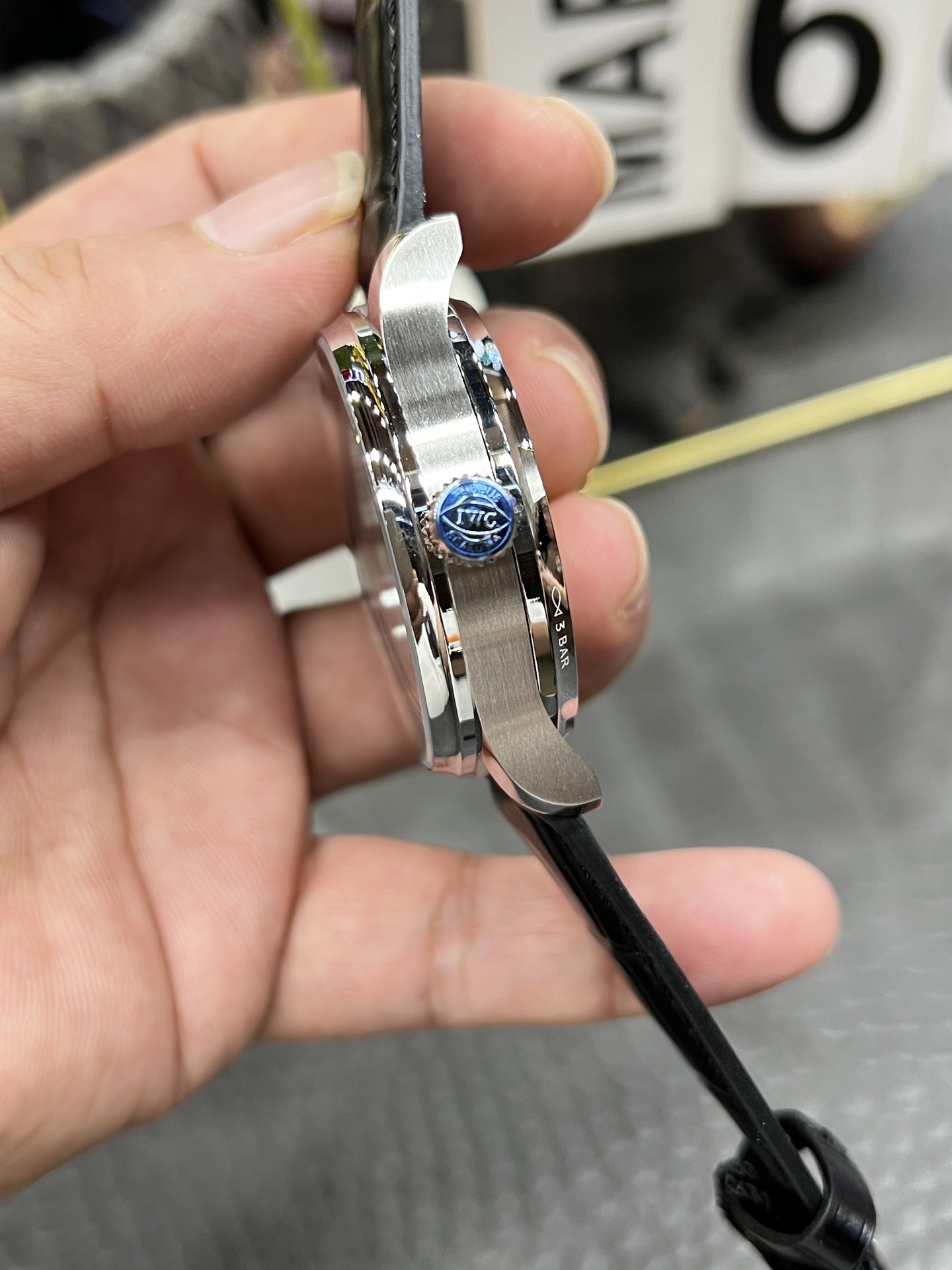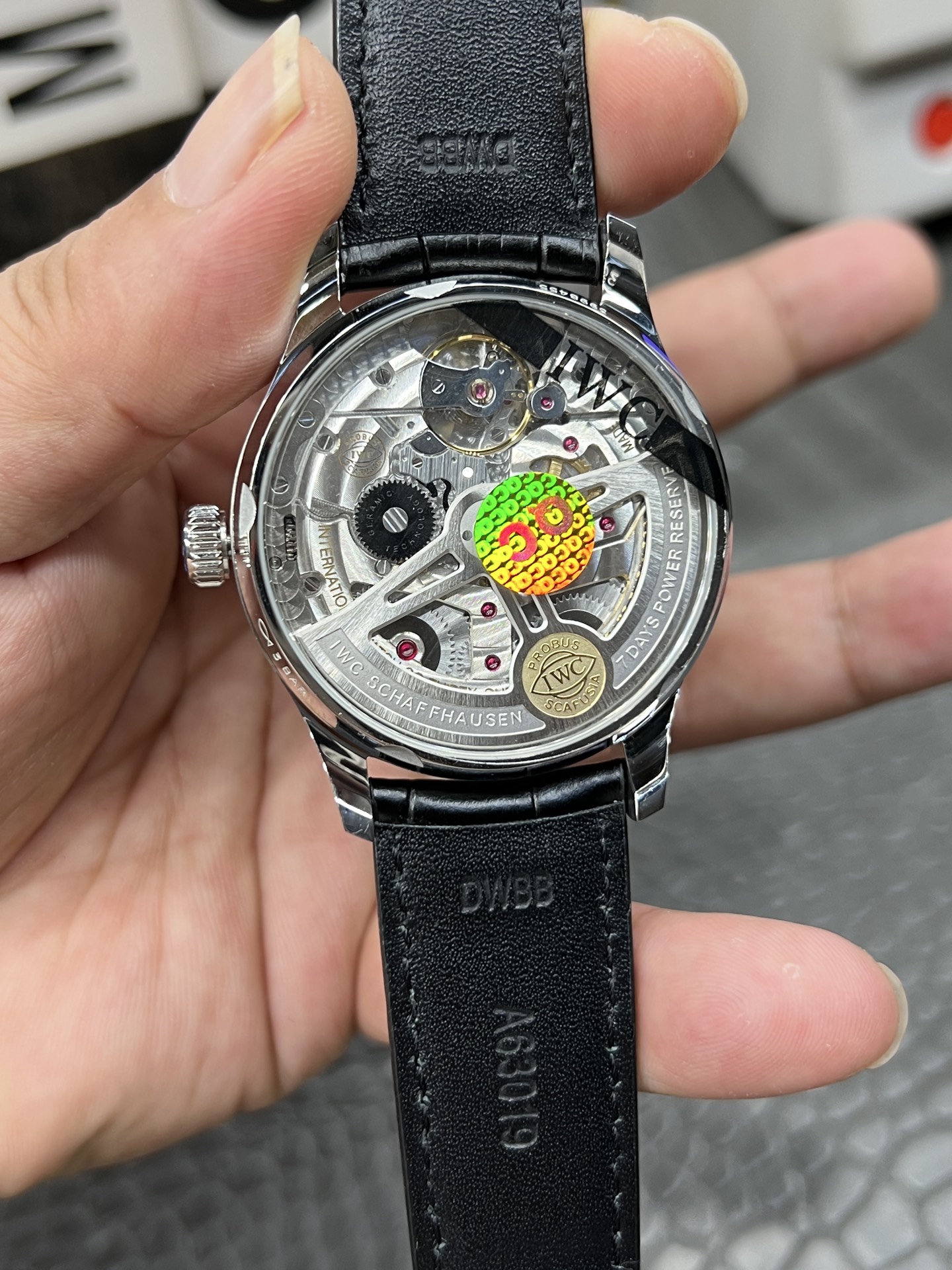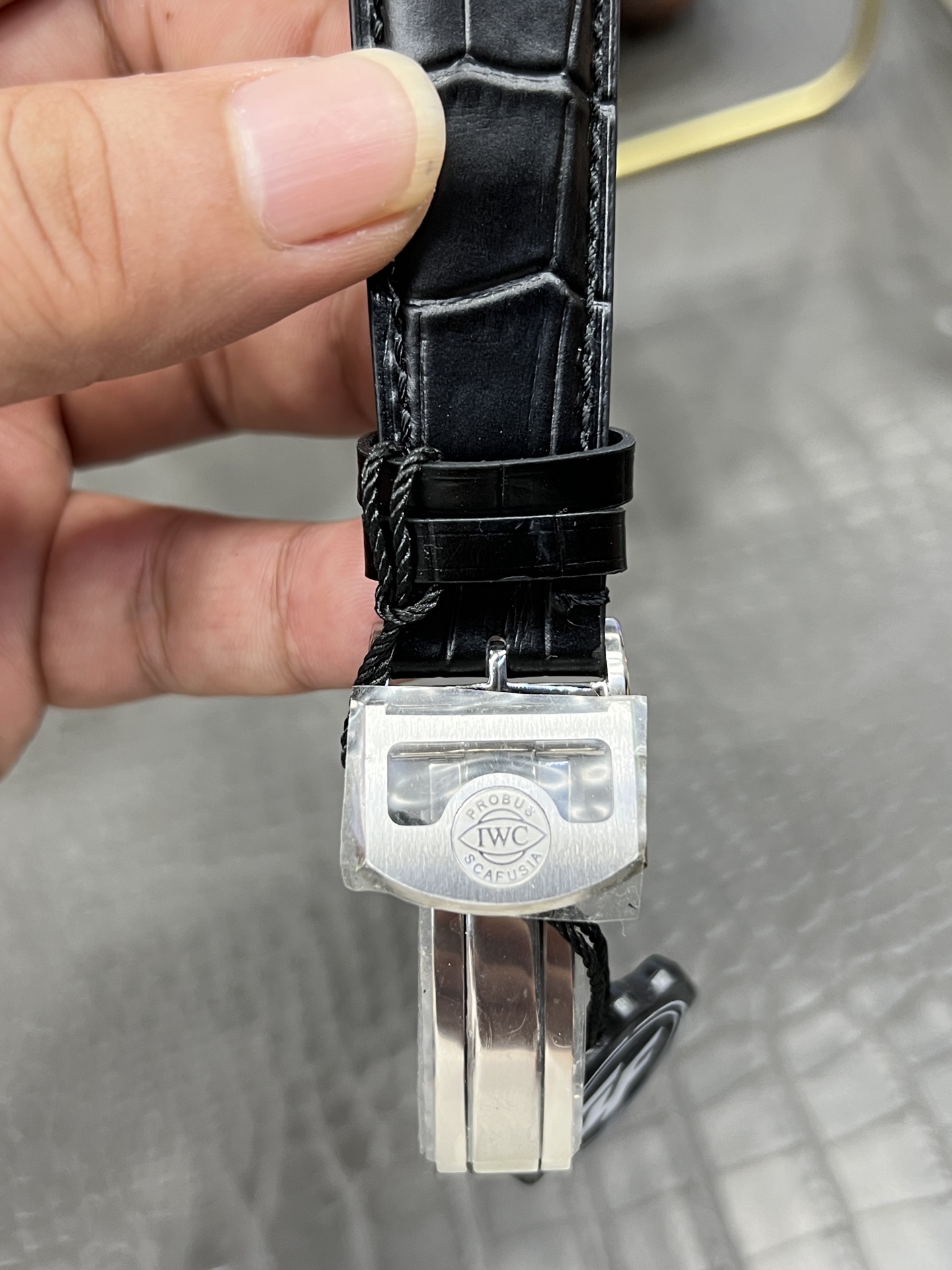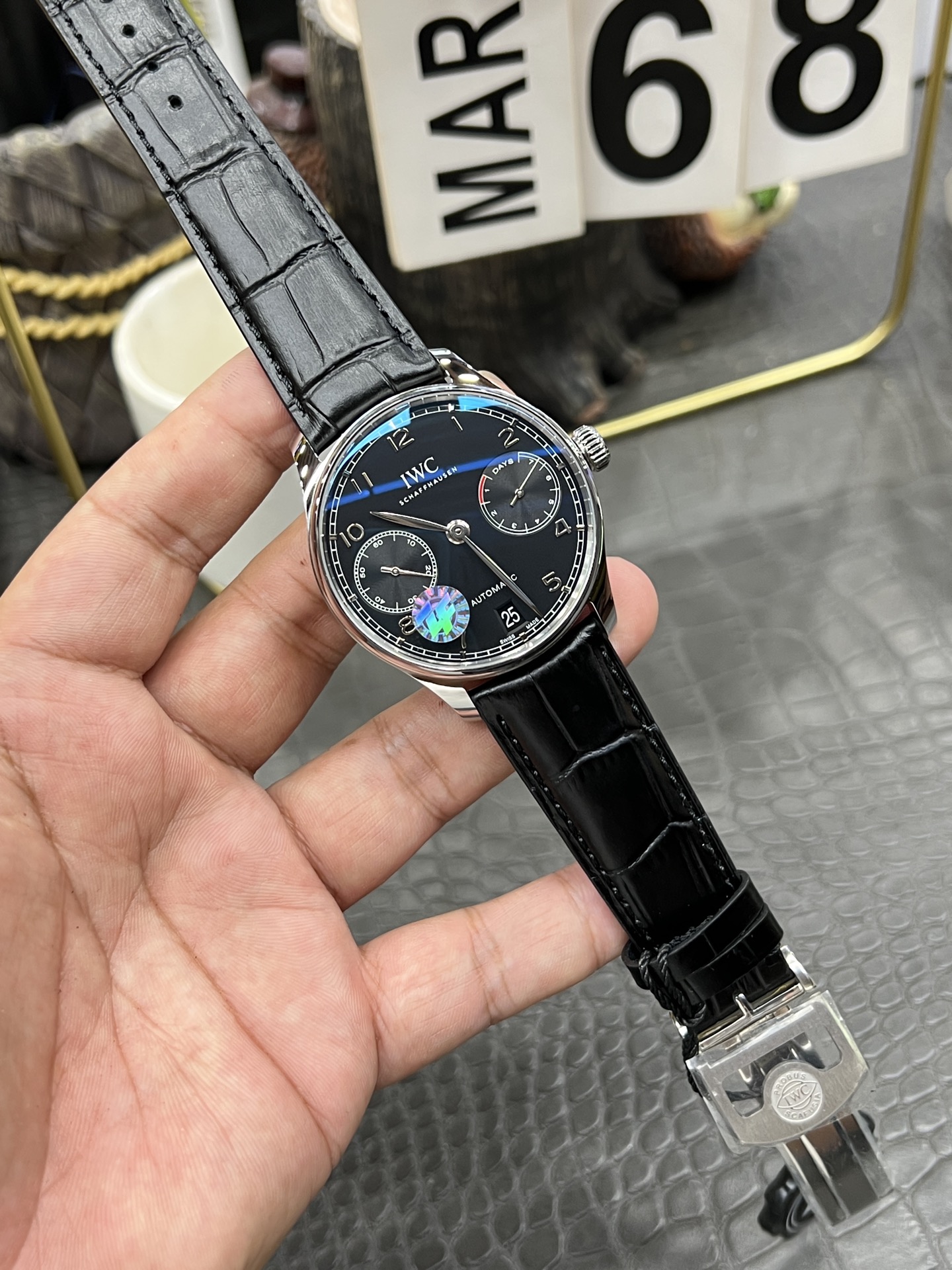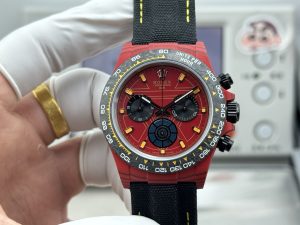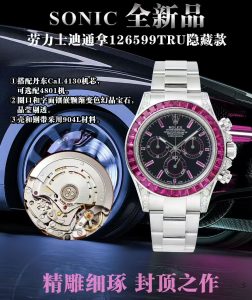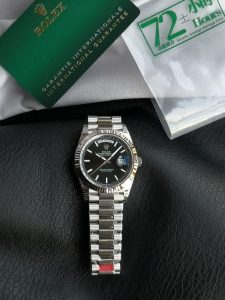In the world of luxury watches, the IWC Portuguese Automatic 7-Day stands as a testament to horological excellence. The 42mm stainless steel case, paired with a black dial, embodies the classic yet sophisticated aesthetics that have made the Portuguese collection a favorite among collectors. The Chinese replica manufacturer ZF, known for its meticulous attention to detail, has engineered a noteworthy reproduction of this iconic timepiece, housing a custom version of the 52010 automatic movement. In this analysis, we delve into the nuances of this replica, exploring its craftsmanship and the broader implications of the replica watch market.
Craftsmanship: Beyond the Surface
ZF’s iteration of the IWC Portuguese 7-Day—a watch colloquially known as the “Portugieser”—offers a compelling visual and functional facsimile of the original. The replica’s 42mm case mirrors IWC’s precise proportions, and the black dial replicates the luxurious simplicity that defines the brand’s aesthetic. However, one of the most significant feats is the custom 52010 automatic movement replica. While it may not match the exacting standards of IWC’s engineering, it offers reliability and accuracy that is impressive within the realm of replicas. This attention to detail underscores ZF’s commitment to providing enthusiasts with access to luxury design at a fraction of the cost.
The Ethics of Replication: An Economic Perspective
The replica watch industry often sits at the intersection of ethical debate, balancing between providing affordable luxury and infringing on intellectual property rights. Economically, replicas democratize access to high-end watch designs, allowing a broader audience to engage with the aesthetics and functionality of brands like IWC without the prohibitive price tag. Yet, this disrupts the luxury market which thrives on exclusivity and scarcity—key economic drivers that sustain high resale values and brand prestige. Data suggest that while luxury watch sales remain robust, the rising quality of replicas poses a challenge to traditional sales models.
Branding and the Luxury Illusion
Luxury brands such as IWC cultivate a mystique through craftsmanship, heritage, and exclusivity. The replica market challenges this narrative by offering similar visual appeal without the associated costs, thus questioning the perceived value of branding itself. If a ZF replica can convincingly emulate the visual and mechanical aspects of an IWC original, it raises an existential question: how much are we paying for brand prestige rather than tangible quality? This dynamic illustrates the power brands hold in shaping consumer psyche and perceived worth—a cornerstone of luxury marketing.
Psychological Implications and Personal Value
Choosing a replica over an authentic watch is not merely a financial decision but a psychological one. The replication captures the essence of the IWC Portuguese, allowing wearers to embody an image associated with sophistication and success. While some view replicas as mere imitations, for many, they represent practical expressions of personal style without succumbing to the pressures of consumerist vanity. This shift underscores a growing recognition that personal value can be cultivated through frugality and authenticity to self rather than brand allegiance.
Conclusion: Reflections on the Replica Ecosystem
The ZF IWC Portuguese 7-Day replica serves as both a marvel of accessible craftsmanship and a symbol of the ongoing dialogue between luxury and affordability. It prompts us to reconsider the intrinsic value of luxury goods beyond their price tags and to appreciate the complexities of consumer choice in a globalized economy. As the boundaries between replica and original continue to blur, the watch industry—and indeed consumers—must adapt to an evolving marketplace that challenges traditional notions of value, prestige, and authenticity.

